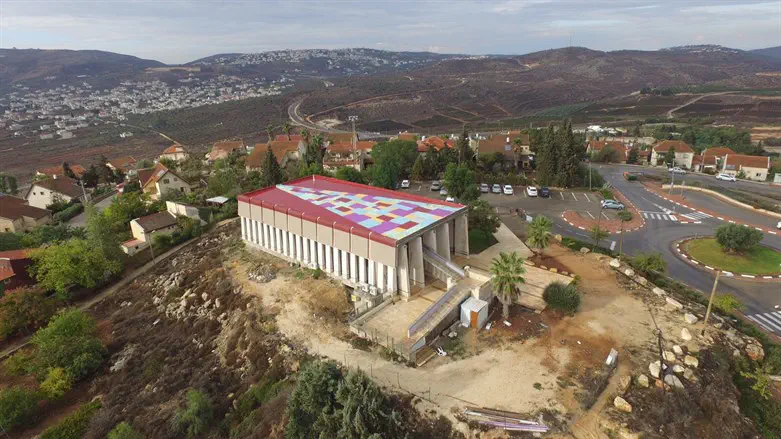
We pray for the speedy recovery of the wounded and Hashem's protection for the soldiers and citizens of Israel.
אנו מתפללים להחלמה מהירה של הפצועים ולשמירתם של ה' על חיילי ואזרחי ישראל.
To view all the Torah Lessons, Click Here
Parashat Vayigash
Presented By: Rav Mordechai Gershon Written by: Nir Shaul
Presented By: Rav Mordechai Gershon Written by: Nir Shaul
Originally, the Israelites descended to Egypt temporarily and not to settle in the land.
Question
Why did the Israelites choose to settle more permanently in Egypt?
Answers
1. The Israelites initially received excellent conditions when they settled in Egypt and therefore extended their stay.
2. The land of Egypt held onto the Israelites and influenced their self-identity.
Question
Why did the Israelites choose to settle more permanently in Egypt?
Answers
1. The Israelites initially received excellent conditions when they settled in Egypt and therefore extended their stay.
2. The land of Egypt held onto the Israelites and influenced their self-identity.
To watch the Torah Lesson, Click Here
To view all the Mishna Lessons, Click Here
Mishna: Mesechet Megilla Perek 1 Mishna11
Presented By: Avrum Leeder Writte n by: Yehuda Gold
Presented By: Avrum Leeder Writte n by: Yehuda Gold
The mishna in Megilah says: sacrifices of less sanctity and the second tithe may be eaten where the Mishkan (Tabernacle) can be seen, while in Jerusalem, they may be eaten only within the (city) walls.
Question
Would it not seem more reasonable to assume that the holier a place, the greater area its sanctity covers?
Answer
The sanctity of Shiloh expands even to mundane places, comparable to Yosef.
The sanctity of Jerusalem remains within its defined area, and reaches higher levels, comparable to Yehuda.
To watch the Mishna Lesson, Click Here
Location of the Week
Location: Yishuv Etz Efraim Subject: Yishuv Etz Efraim
Reference: Haftarah of Vayigash; Yechezkel Perek 37 Posuk 16
Etz Efraim
Written by: David Magence
Location: Yishuv Etz Efraim Subject: Yishuv Etz Efraim
Reference: Haftarah of Vayigash; Yechezkel Perek 37 Posuk 16
Etz Efraim
Written by: David Magence
Etz Efraim is the name of a modern Yishuv in the Shomron, which was established in 1985. The name is taken from the opening posuk of the parasha's haftarah, and was chosen both because the yishuv was established Motzaei Shabbat Vayigash and because of the fact that it is in the portion of Shevet Efraim. The population of the Yishuv is mixed, including religious and secular Jews, and perhaps this fits the prophecy of Yechezkel of unity (posuk 19).
In ancient times, the area was agricultural land in Shevet Efraim, and indeed in proximity to the Yishuv, there are remains of ancient agricultural structures, including shomerot - watch towers used for storing and protecting the agricultural produce.
In ancient times, the area was agricultural land in Shevet Efraim, and indeed in proximity to the Yishuv, there are remains of ancient agricultural structures, including shomerot - watch towers used for storing and protecting the agricultural produce.




